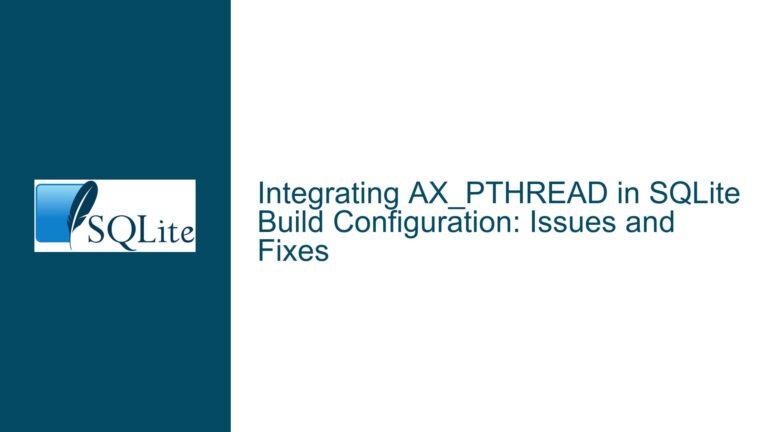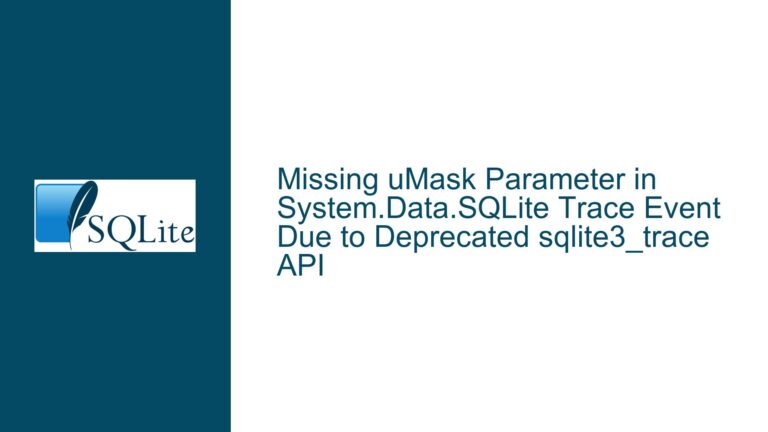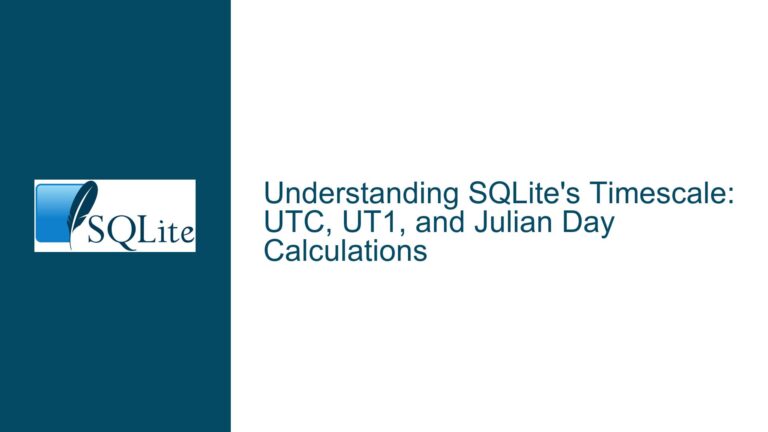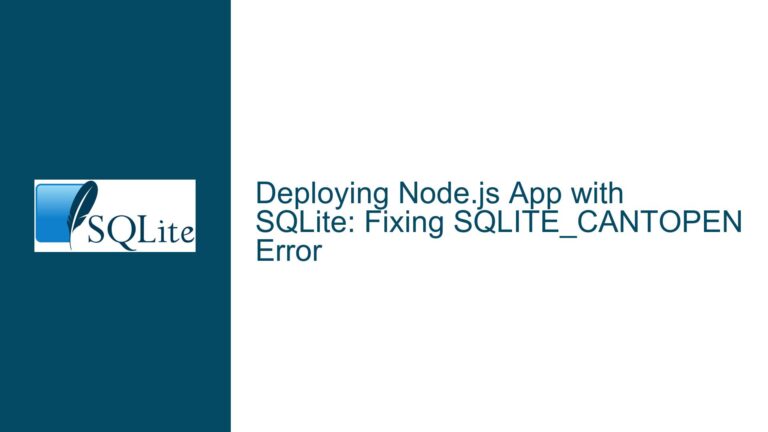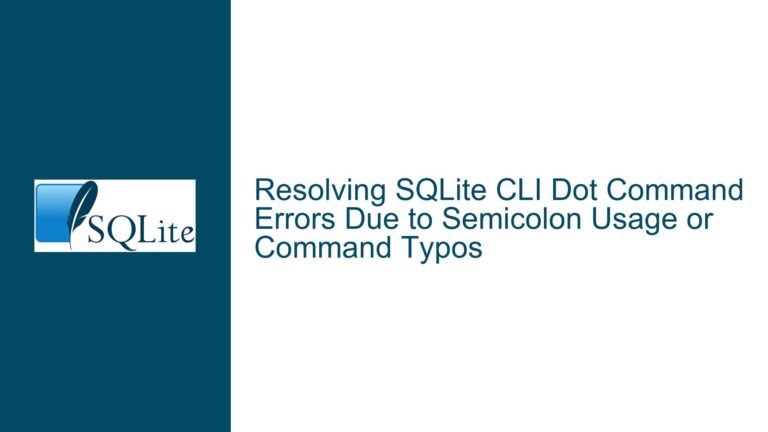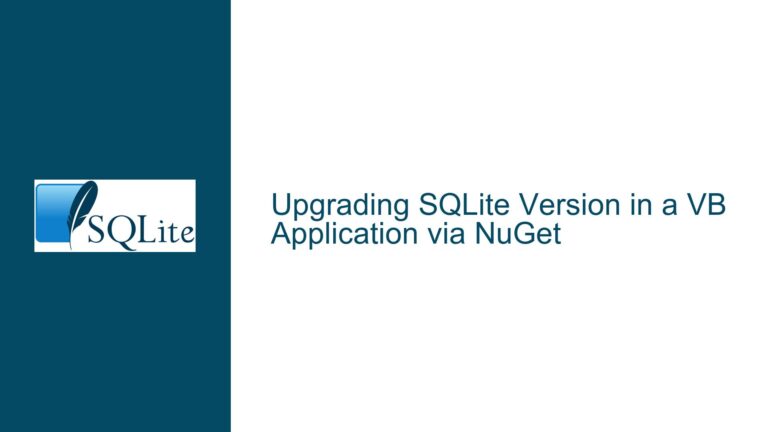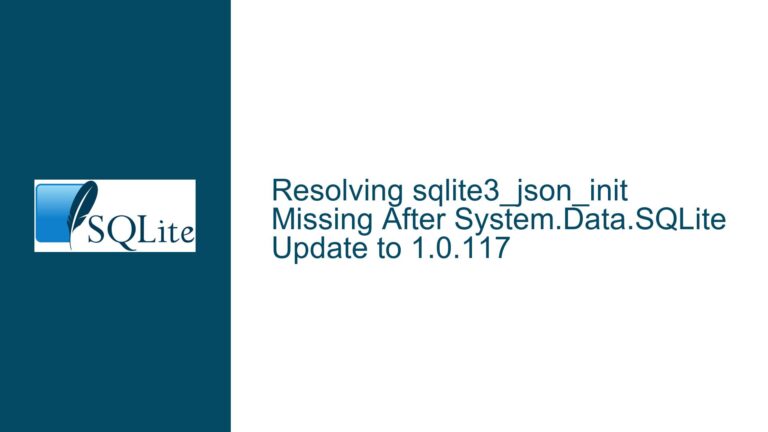Integrating AX_PTHREAD in SQLite Build Configuration: Issues and Fixes
Understanding the Role of AX_PTHREAD in SQLite’s Build Process The integration of the AX_PTHREAD Autoconf macro into SQLite’s build configuration revolves around ensuring proper detection, configuration, and linkage of POSIX threads (Pthreads) during compilation. SQLite relies on Pthreads for thread-safe operations in environments where concurrent access to the database is required. The absence of standardized…
